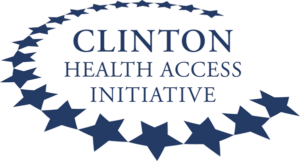The problem
Despite significant progress, the decline in HIV-related deaths has stagnated in recent years, threatening the global target of ending AIDS by 2030. Up to half of all people living with HIV who seek out care come in with advanced HIV disease, a dangerous advanced stage of the infection that severely compromises a person’s immune system. This population is particularly susceptible to opportunistic infections, which can cause serious illness and death. In 2022, 630,000 people worldwide died from AIDS-related illnesses, many of them from advanced HIV disease.
Our response
Together with a complementary Unitaid project, the THRIVE project aims to improve access to advanced HIV care and treatment in five African countries where HIV is common: Kenya, Mozambique, Uganda, Nigeria, South Africa, Zimbabwe. The project aims to help reduce deaths among adults and children living with HIV by ensuring that people around the world can access important prevention, screening, and treatment options. The project focuses on empowering local leaders and communities to find and support people living with HIV where they are.
THRIVE will improve HIV services by making new technologies available, helping people connect to better care for related infections, training national and community programs to provide effective services, and bringing services closer to at-risk populations. THRIVE aims to gather evidence on how to implement the STOP AIDS guidance, involve communities in HIV interventions, and unite global partners to set goals and streamline efforts. Additionally, THRIVE will tackle supply-side barriers that restrict access to vital tools.
Through these two investments and building on prior work, Unitaid’s advanced HIV disease portfolio seeks to reduce mortality from leading opportunistic infections including tuberculosis, cryptococcal meningitis, histoplasmosis, and severe bacterial infections, while optimizing cost efficiencies for health systems to sustain the national HIV response.




